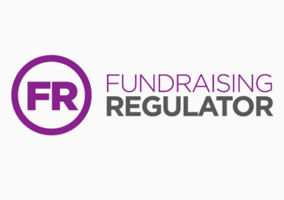The cases seen by the Fundraising Regulator have become more complex over the past few years, according to its chief executive Gerald Oppenheim.
According to its latest accounts, there was an increase in public awareness of its existence, as well as an increase in fundraising suppressions during 2021-22, and a slight increase in complaints year-on-year.
In 2021-22 it received 1,056 incoming cases overall, a 2% increase on 2020-21, and a 26% increase on 2019-20.
10% increase in suppressions
The regulator made changes to the Fundraising Preference Service (FPS) last year, a service which enables the public to manage direct marketing communications from registered charities.
Changes included increasing the number of charities that could be suppressed in a single online transaction from three to ten and a new option to use the service on behalf of someone who has died.
There was a 10% increase in suppressions since 2020-21 to over 6,000.
Regulator narrowly misses target
In its latest accounts, the regulator reported that it closed 88% of cases within four weeks of a complaint, which comes in just below its target of 90%.
Some 54% of cases were closed as they were outside the regulator’s remit, which may be because aspects of them were more appropriate for a different organisation.
Over a third (36%) were within the regulator’s remit. Charity bags, digital, collections, and addressed mail were the most complained about methods of fundraising. Concerns about misleading information and negative fundraiser behaviour were also common issues.
The remaining 10% of the closed cases were not suitable for further consideration.
'Complaints are more complex now'
Gerald Oppenheim, chief executive of the Fundraising Regulator, said: “Our complaints caseload has increased compared to a couple of years ago, with some of the complaints that we do need to investigate proving to be more complex to resolve.
“We are strengthening our proactive approach to casework with the intention of identifying emerging issues before they crystallise and intervene to prevent harm to the public or sector. This includes launching an online self-reporting tool for fundraising organisations to tell us about potential breaches of fundraising standards, so that we can provide advice on the most appropriate response.”
98% of charities paid Fundraising Regulator levy
The levy is a voluntary payment by charities in England, Wales and Northern Ireland with an annual spend of over £100,000 on their fundraising activities. The levy fee band for each charity is based on the fundraising expenditure recorded in its published accounts.
From September 2021 to August 2022, the regulator saw a 98% payment rate for its annual Fundraising Levy - the same rate as the year prior. It is planning increases to the levy in 2024-25.
The regulator also saw a 14% increase in its overall number of registrants, from 4,980 to nearly 5,700.
Increasing public awareness of the Fundraising Regulator is positive, says chair
A snapshot survey found the awareness of the regulator has risen from less than one in ten in 2019 to one in five members of the general public in 2022. The 2022 survey asked 2,200 members of the public.
Lord Toby Harris, chair of the Fundraising Regulator, said: “This year continued to pose challenges for the charitable fundraising sector with the coronavirus pandemic, Ukraine conflict and cost of living pressures affecting the fundraising landscape. I commend the generosity of the British public and diligence of charities who have worked hard to maintain excellent standards whilst raising funds in this changing climate.
“As a regulator, our primary role is to protect the public. So it is encouraging to see an increasing public awareness of our work alongside a rising number of charities committing to legal, open, honest and respectful fundraising by registering with us. We look forward to further developing our proactive approach to regulation, so the public has confidence and trust in fundraising, and charitable fundraising can thrive.”
Editor's Note: This article has been updated to clarify the levy fee.
Related articles











